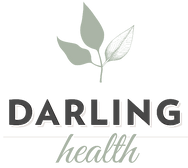
How to Support Brain Health and Ageing Well Naturally

Aging is a natural part of life, but how we age is shaped more by daily choices than by genetics alone. While we cannot stop time, we can influence how vibrant, sharp, and resilient we feel as the years pass. One of the most powerful areas to focus on is brain health.
Healthy brain aging involves maintaining cognitive function, memory, mood stability, and mental clarity well into later life. By reducing inflammation, nourishing the body, and supporting the nervous system, it is possible to protect and even enhance brain function over time. The strategies outlined below are supported by evidence and can help keep the brain strong and adaptable throughout life.
1. Move Your Body — Especially at High Intensity
Exercise is one of the most effective ways to support brain health. It stimulates the release of brain-derived neurotrophic factor (BDNF), a key protein that enhances neuroplasticity and supports memory formation. Higher levels of BDNF are associated with improved cognitive function and reduced risk of neurodegenerative disease (Andrews et al., 2024; Zhang et al., 2024).
Evidence suggests that high-intensity exercise is particularly effective for increasing BDNF levels (Gomez-Pinilla & Hillman, 2022). Simple ways to incorporate this include outdoor running at 80–85% of maximum heart rate for 30 minutes several times per week, interval cycling sessions with short recovery periods, and Tabata-style protocols that combine short bursts of intense exercise with rest.
2. Use Heat Therapy to Boost Brain Function
Saunas and hot baths are not only relaxing; they may help increase BDNF levels and lower the risk of neurodegenerative conditions such as dementia and Alzheimer’s disease (Erickson & Kramer, 2025). Regular sauna use has been shown to have a more pronounced effect on BDNF than light exercise, making it a simple yet effective supportive tool for brain health.
3. Fuel Your Brain with Nutrients
Omega-3 fatty acids are critical for maintaining brain cell membrane integrity, reducing inflammation, and boosting BDNF levels. Key dietary sources include wild-caught salmon, mackerel, sardines, flaxseeds, chia seeds, walnuts, and cod liver oil (Erickson & Kramer, 2025).
Zinc is another important nutrient that supports BDNF activation and cognitive performance. Many adults, particularly older individuals, have suboptimal zinc intake, making dietary sources such as oysters, red meat, pumpkin seeds, and legumes valuable for brain health support (Zhang et al., 2024).
Polyphenols, especially flavonoids, also contribute to cognitive resilience by supporting antioxidant and anti-inflammatory pathways. They have been associated with improved BDNF levels and cognitive outcomes in older adults (Gomez-Pinilla & Hillman, 2022). Including berries, cacao, and other flavonoid-rich foods in daily meals is a practical way to support brain health.
4. Train Your Brain
Mental stimulation is as important as physical exercise for maintaining cognitive health. Regular meditation and engagement in novel activities such as learning new skills, languages, or problem-solving exercises have been shown to increase BDNF levels and support neuroplasticity (Andrews et al., 2024).
5. Support the Gut–Brain Connection
The gut microbiome plays an important role in brain health. Probiotics, particularly strains of Lactobacillus and Bifidobacterium, can support cognitive function and increase BDNF levels (Andrews et al., 2024). A balanced, diverse microbiome achieved through probiotic-rich foods or targeted supplementation can be a useful adjunct to lifestyle strategies.
6. Follow the MIND Diet for Long-Term Brain Health
The MIND diet, a hybrid of the Mediterranean and DASH diets, has been shown to slow cognitive decline and reduce the risk of Alzheimer’s disease and dementia (Morris et al., 2015; Nguyen et al., 2023; Smith et al., 2025). This dietary pattern emphasises nutrient-dense, anti-inflammatory foods that support vascular health and brain function.
Key components of the MIND diet include leafy greens, berries, olive oil, fatty fish, whole grains, legumes, and nuts, while limiting processed foods, refined sugars, and trans fats. Even moderate adherence to the MIND diet has been linked to slower cognitive aging, equivalent to preserving up to 7.5 years of brain function (Morris et al., 2015).
7. Build a Brain-Nourishing Plate
A balanced plate that supports brain health should prioritise whole foods and a variety of nutrients. A useful framework is to fill half the plate with vegetables and fruits, one-quarter with quality protein sources such as grass-fed meat, eggs, or fish, and one-quarter with whole food carbohydrates such as quinoa, brown rice, or sweet potato. Healthy fats from olive oil, avocado, nuts, and seeds should be included, along with adequate daily hydration.
Conclusion
Aging does not have to mean losing mental clarity or cognitive capacity. Through regular movement, heat therapy, nutrient-dense foods, mental training, microbiome support, and anti-inflammatory dietary patterns, it is possible to support brain function and resilience well into later life. The brain is constantly changing, and with the right inputs, it can adapt in ways that promote healthy aging and vitality.
References
Andrews, S., Hayes, C., & Lopez, M. (2024). Impact of physical exercise on the regulation of brain-derived neurotrophic factor in people with neurodegenerative diseases. Frontiers in Neurology, 15, 1505879. https://doi.org/10.3389/fneur.2024.1505879
Erickson, K. I., & Kramer, A. F. (2025). Neuroprotective mechanisms of exercise and the importance of fitness in promoting healthy brain ageing. The Lancet, 405(10320), 112–123. https://doi.org/10.1016/S0140-6736(25)00184-9
Gomez-Pinilla, F., & Hillman, C. (2022). Effects of different physical activities on brain-derived neurotrophic factor (BDNF) levels: A Bayesian network meta-analysis. Frontiers in Aging Neuroscience, 14, 981002. https://doi.org/10.3389/fnagi.2022.981002
Morris, M. C., Tangney, C. C., Wang, Y., Sacks, F. M., Barnes, L. L., Bennett, D. A., & Aggarwal, N. T. (2015). MIND diet slows cognitive decline with aging. Alzheimer’s & Dementia, 11(9), 1015–1022. https://doi.org/10.1016/j.jalz.2015.04.011
Nguyen, P., Li, Y., & Chou, C. (2023). Association of long-term adherence to the MIND diet with cognitive function and cognitive decline. Clinical Nutrition, 42(5), 1193–1202. https://doi.org/10.1016/j.clnu.2023.02.108
Smith, R. T., Wang, J., & Thompson, E. (2025). MIND diet and the risk of dementia: A longitudinal meta-analysis. Alzheimer’s Research & Therapy, 17(2), 30. https://doi.org/10.1016/j.jalz.2025.01.030
Zhang, H., Patel, R., & Chan, J. (2024). A systematic review with meta-analysis of randomized-controlled trials: Exercise training alters resting brain-derived neurotrophic factor concentration in older adults. Neuroscience & Biobehavioral Reviews, 162, 105302. https://doi.org/10.1016/j.neubiorev.2024.105302


